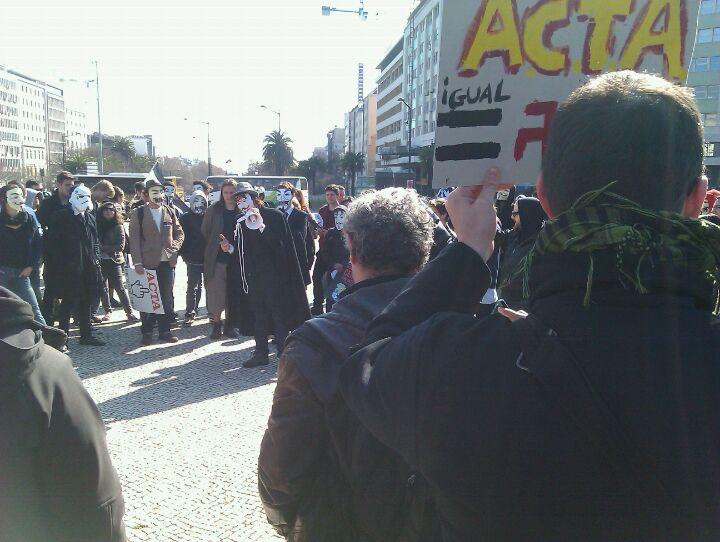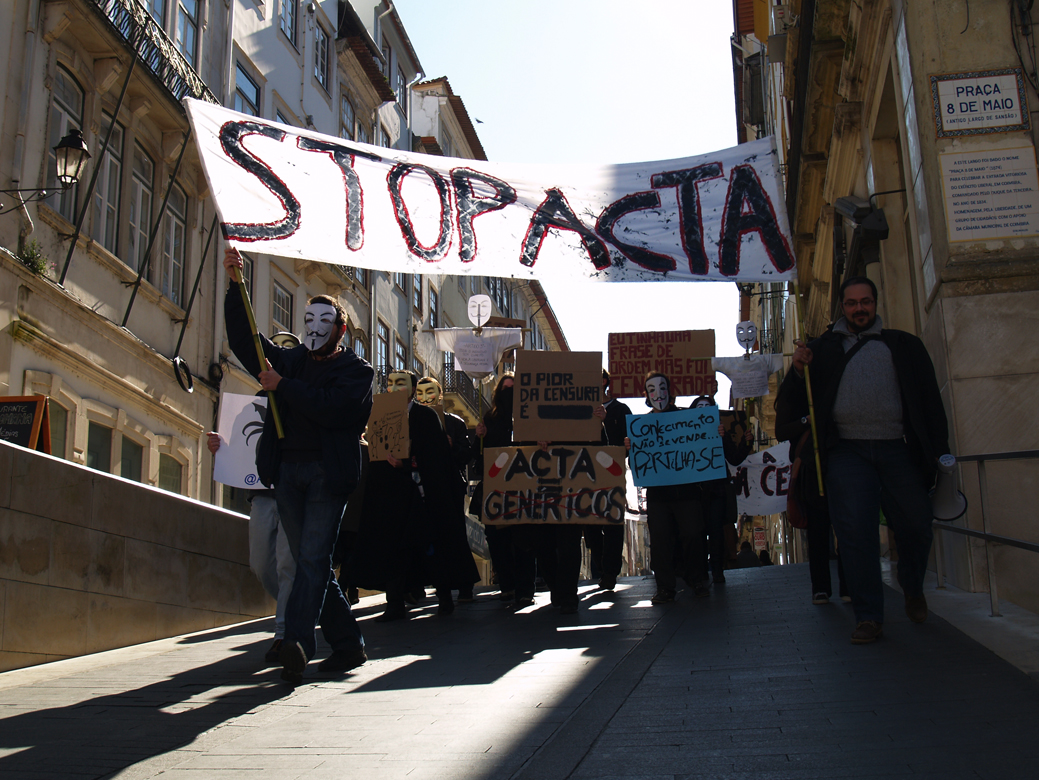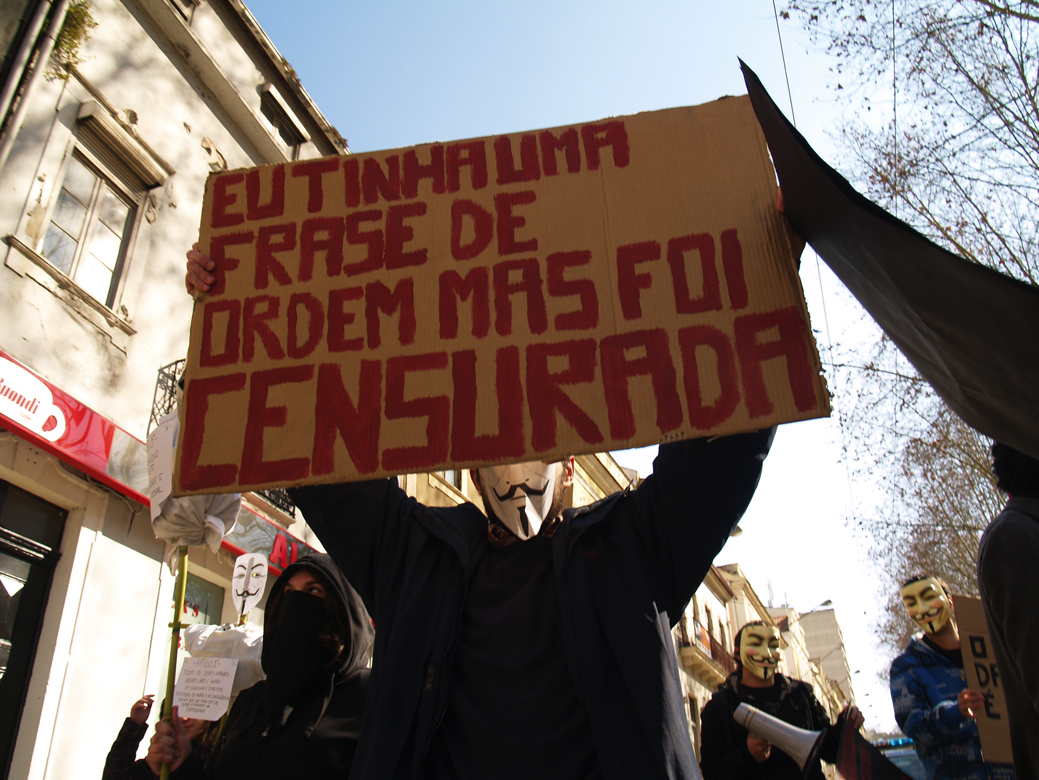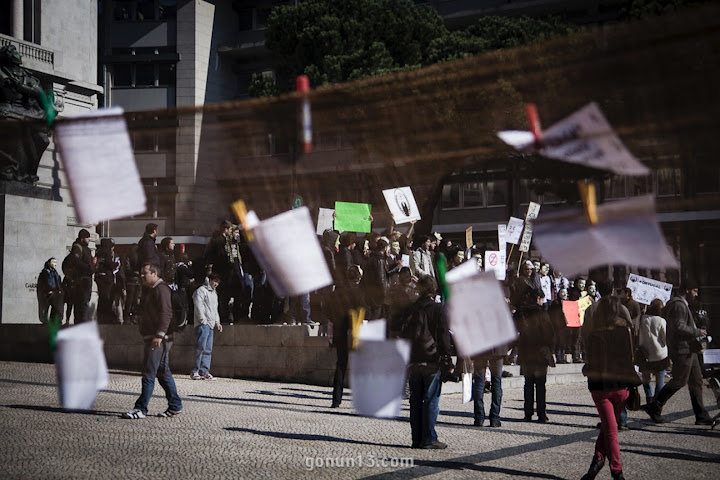On 11 February, 2012, more than 200 cities around the world joined the global protests [1] against ACTA [2] – the proposed multi-national Anti-Counterfeiting Trade Agreement that aims to establish international standards for intellectual property rights enforcement. In Portugal, around 300 people demonstrated on the streets of Lisbon [3], Porto [4], Coimbra [5], Viseu [6] and Braga [7], following the calls that had been organized via Facebook.
Kris Haamer summed up [8] the Lisbon event:
ACTA is censorship, a return to dictatorship” was what the group, many in Guy Fawkes masks, were shouting in an Anti-ACTA march in Lisbon center. I would describe it as small and unorganized (perhaps 200 people) with little structure and focus on coherent messaging. Very few people with laptops or iPads, iPhones, etc to share the message and only 1 tv station takin an interest..
 [9]
[9]"ACTA seems to be a marginal concern in Portugal. Few people mostly the youth". Photo by Kris Haamer on Foursquare (used with permission).
In Porto, although more than one thousand netizens had confirmed on Facebook their intention to participate in the protest, only a few dozen actually concentrated in the Aliados Avenue, in front of the City Hall. Some of the demonstrators came from Braga, as they decided to join forces in just one city in the North, due to low participation there.
The protest, which was livestreamed [11] on the blog of #AnonymousPortugal, then moved to the entrance of the newspaper Jornal de Notícias, in order to capture the attention of mainstream media, with success [12].
In Coimbra, out of 154 confirmations on Facebook, only 21 people joined the demonstration.

Protest in Coimbra. Photo sent by an anonymous (used with permission).

"I had a motto but it was censored." Photo from Coimbra sent by an anonymous (used with permission).
In Viseu only 7 people joined. A new demonstration is scheduled for February 18 [14] in Évora.
Activist on intellectual property issues Maria João Nogueira, wrote on her blog an open letter [15] [pt] to the Prime Minister Pedro Passos Coelho where she mentions some of the countries that have stepped back from signing the agreement, recalling that:
o Embaixador Português no Japão já assinou a ACTA em nome de Portugal (e ainda não vi o pedido de desculpas), embora, curiosamente, não haja notícia desta assinatura, nem da posição do Governo Português acerca deste “tratado”.
On a different post she mentions a statement from 2010 that was signed by some of the members of the Parliament who “had reservations about the transparency of the process and have expressed doubts regarding the contents of this treaty”. Nogueira shares [16] [pt] a list of the representatives, as well as their emails addresses, and invites readers “to ask the ones who signed if they have already clarified their doubts, and to those who didn't sign it, why they didn't do it, and what's their opinion/position about the subject”.
While the treaty is open for signature until March 31, 2012, Avaaz's world wide petition [17] has already gathered more than 2.1 million signatures in just two weeks.

